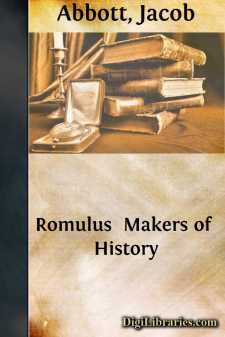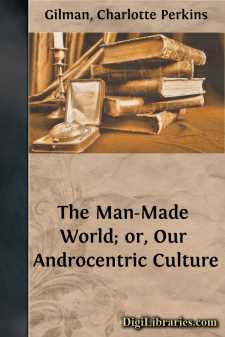History
- Africa 30
- Americas (North Central South West Indies) 50
- Ancient 68
- Asia 58
- Australia & New Zealand 8
- Canada 41
- Caribbean & West Indies 1
- Civilization 20
- Eastern Europe 12
- Europe 310
- Expeditions & Discoveries 60
- General 77
- Historical Geography 1
- Jewish 9
- Latin America 3
- Medieval 8
- Middle East 14
- Military 248
- Revolutionary 8
- Study & Teaching 5
- United States 353
- Western Europe 56
- World 13
History Books
Sort by:
by:
Jacob Abbott
CADMUS. B.C. 1500Different kinds of greatness.Some men are renowned in history on account of the extraordinary powers and capacities which they exhibited in the course of their career, or the intrinsic greatness of the deeds which they performed. Others, without having really achieved any thing in itself very great or wonderful, have become widely known to mankind by reason of the vast consequences...
more...
HISTORY My theme is history. It is an old subject, which has been discoursed about since Herodotus, and I should be vain indeed if I flattered myself that I could say aught new concerning the methods of writing it, when this has for so long a period engaged the minds of so many gifted men. Yet to a sympathetic audience, to people who love history, there is always the chance that a fresh treatment may...
more...
AIDS TO MEMORY There is much repetition in the book, the same facts being presented, for instance, under the heads of Army, Religion, Confucius, and Marriages. This is intentional, and the object is to keep in the mind impressions which in a strange, ancient, and obscure subject are apt to disappear after perusal of only one or two casual statements. The Index has been carefully prepared so that any...
more...
INTRODUCTION It is a pleasure to write a few words of introduction to this collection of stories dealing with the early history of Connecticut, a state that can justly point with pride to a past rich in features of life and government that have been influential in the making of the nation. Yet the history of the colony was not dramatic, for its people lived quiet lives, little disturbed by quarrels...
more...
B.C. 413SIR EDWARD SHEPHERD CREASYThat great writer of the history of the Romans, Thomas Arnold, says of the defeat of the Athenian fleet at Syracuse: "The Romans knew not, and could not know, how deeply the greatness of their own posterity, and the fate of the whole western world, were involved in the destruction of the fleet of Athens in the harbor of Syracuse. Had that great expedition proved...
more...
I. AS TO HUMANNESS. Let us begin, inoffensively, with sheep. The sheep is a beast with which we are all familiar, being much used in religious imagery; the common stock of painters; a staple article of diet; one of our main sources of clothing; and an everyday symbol of bashfulness and stupidity. In some grazing regions the sheep is an object of terror, destroying grass, bush and forest by omnipresent...
more...
This restoration of a portion of the original track of theLexington and Ohio (now Louisville and Nashville) Railroadlaid at Lexington in 1831, is dedicated to those men offorethought and courage who were pioneers in railroaddevelopment in America. Erected Anno Domini MCMXVI. Dedication Exercises 10 A. M. May 30, 1916 College of Mechanical and Electrical Engineering University of Kentucky During the...
more...
HISTORY of the DIVISION of MEDICAL SCIENCES This paper traces, for the first time, the history of the Division of Medical Sciences in the Museum of History and Technology from its small beginnings as a section of materia medica in 1881 to its present broad scope. The original collection of a few hundred specimens of crude drugs which had been exhibited at the centennial exhibition of 1876 at...
more...
CHAPTER ITHE NEUTRALITY OF BELGIUM AND LUXEMBURGI The kingdom of Belgium is a comparatively new creation, but the idea of a Belgian nation is older than the kingdom. Historically and geographically the kingdom has no doubt an artificial character; its boundaries have been determined by the Great Powers and cut across the ancient provinces of the Netherlands. And it must be added that its population is...
more...
by:
Edward Carpenter
I INTRODUCTORY The following Studies and Notes, made during the earlier period of the present war and now collected together for publication, do notвÐâas will be evident to the readerвÐâpretend to any sort of completeness in their embrace of the subject, or finality in its presentation. Rather they are scattered thoughts suggested by the large and tangled drama which we are...
more...











